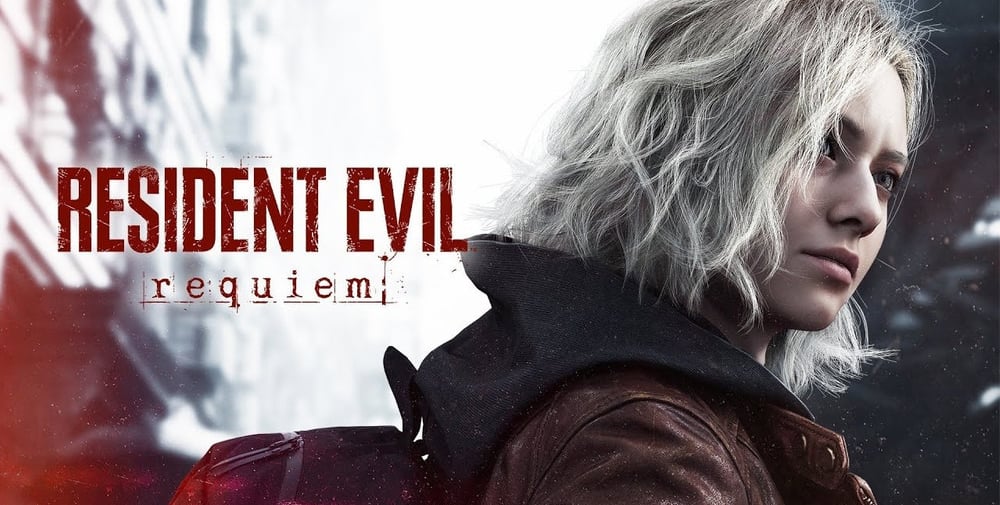Before RE9: Revisiting the Games That Taught Me Fear
Resident Evil and the art of slow, scary zombies
GAMING
Eldee
7/15/20253 min read


When Resident Evil 9: Requiem was announced last month at Summer Games Fest, I felt a jolt, not just of excitement, but of something deeper. A pull toward a franchise that had shaped how I understood fear, tension, and even storytelling in games.
So I booted up Resident Evil 2 Remake.
Not just to hype myself up for RE9, but to relive something I hadn't felt in years: the slow, creeping dread of a hallway you don't want to walk down. The kind of fear that doesn't shout, it waits. It breathes behind doors. It follows you quietly. (Shoutout to Mr. X)
But to understand why this hit so hard, I need to go back.
My First Fear: Watching My Brother Play Resident Evil
My first encounter with Resident Evil wasn't through a controller, it was through my brother’s hands. I was the kid on the floor, watching him navigate Raccoon City with those stiff tank controls and unsettling fixed camera angles. To this day, I still remember how the camera never quite showed you everything, forcing your imagination to fill in the blanks. That incomplete picture, what the camera didn’t show, made it even worse. I wasn’t playing, but I was sweating. I was scared to go to the kitchen. And I loved it.
From Fixed Cameras to Over-the-Shoulder: The RE4 Shift
Then came Resident Evil 4. I finally picked up the controller myself, and it changed everything. Gone were the cinematic camera angles and pre-rendered backgrounds. Now, I was right behind Leon, aiming, shooting, panicking in real time. It was more action-packed, yes, but it didn’t abandon tension. If anything, it made it more visceral. You weren’t watching fear. You were inside it. This was the RE that truly hooked me. It made the franchise feel alive, flexible, ambitious, evolutionary.
Action and Escalation: RE5 and RE6
By the time Resident Evil 5 and 6 came around, things had changed. The horror had taken a backseat, replaced by globe-trotting shootouts, melee combat, and Chris Redfield punching boulders into submission. It was loud, chaotic, and honestly, a fun kind of ridiculous.
Some fans weren’t thrilled, and I get it. But for me, there was a different kind of thrill in watching beloved characters like Chris tear through bioterror monstrosities like an action movie hero. It was a different phase, but it still felt like Resident Evil, just with more muscles and less subtlety.
RE7: Fear Reimagined in First-Person
I hesitated before playing Resident Evil 7: Biohazard, and I still haven’t finished it. Why? Because it was too effective.
The switch to first-person was more than just a perspective shift, it was a philosophical one. RE7 stripped away the boulder-punching bravado and threw you into a dilapidated house where every creak felt personal. I found myself holding my breath, flinching at every door creak, dreading every corner. Perhaps it was the quiet stillness of the sound design, or the colours, the yellowish tint to signify rotting and stench.
And while I didn’t play Village (RE8), I’ve heard how it continued that same DNA of intimate, grotesque horror, even if it got more extravagant.
Revisiting RE2 Remake in 2025
Now, years later, RE2 Remake hits differently. It’s not just nostalgia, it’s refinement. Everything feels smoother, more cinematic, but still grounded in fear. Mr. X stomping through the halls isn’t just an enemy mechanic, it’s presence. It’s dread that keeps growing, reminding you that safety is temporary.
Soon, I’ll replay RE3 Remake, and then RE4 Remake, partly for the story, but mostly to trace the DNA of this franchise before RE9 drops.
What I Hope RE9: Requiem Brings
With RE9 on the horizon, I wonder what fear looks like today. Will Capcom go deeper into first-person intimacy, or blend back into third-person tension? Will we return to that balance of horror and action that made games like RE4 legendary? I don’t know. But I do know this: Resident Evil taught me that fear doesn’t always need to scream. Sometimes, all it takes is a camera angle you can’t control… or a door you don’t want to open.
And after all these years, I still want to open it.
eldeegoh@outlook.com
